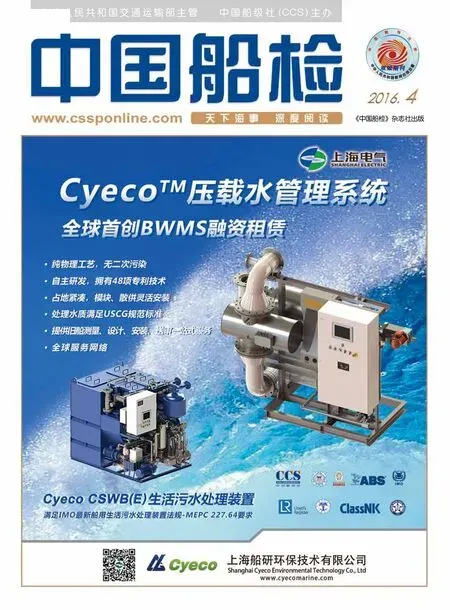Community of Common Destiny Formed by Cross-shareholding
Reporter Yang Peiju

Early in February, China COSCO Holdings Company Limited, Wuhan Iron and Steel Co.,Ltd., China Shipbuilding Industry Corporation(respectively referred to as COSCO, WISCO, and CSSC for short) announced successively the news of public transfer of their state-owned shares free of charge. After equity swaps, the three companies which belong to the upstream and downstream of the same industry chain have formed a new internal market. A totally new industry chain restructuring path is gradually emerging.
Why the cross-shareholding of the three state-owned enterprises is of so much concern to the industry? There are two reasons. First, it is very dif fi cult for the domestic upstream and downstream shipping companies to hold shares crossly; second, the ideology of state-owned enterprises is changing in the process of the latest round reform of state-owned enterprises. This ideology of upstream and downstream industry chain restructuring opens a new practice opportunity for the state-owned enterprises.
As released by an insider, the equity transfer between the three state-owned enterprises is based on multiple considerations. The main aim is restructuring, meanwhile,cross shareholding is also for the purpose of promoting diversi fi cation reform. It is a new path and signal of great signi fi cance as this will promote the restructuring of the upstream and downstream industry chain in the future.On one hand, it facilitates the powerful combination.On the other hand, it provides the preparation for reorganizing state-owned capital operating companies.COSCO, WISCO, and CSSC took a pilot exploration of this practice and insiders are full of expectation of the outcome. In this regard, Li Jin, the Vice President of China Enterprise Reform and Development Research believes that instead of investing for making money,the reorganization is focusing more on the needs and ef fi ciency of industry supply chain and quality, and such restructuring with industry chain as the characteristic is rather new. It is also new for supply-side reform and meet the needs of the supply side. It is expected that there will be more such reorganizing in the future.
For cross-shareholding, there is nearly no corresponding legislation in China, or supervision in practice. So in order to avoid the risk of cross-holdings and ensure healthy development, there is an urgent need to study the legal matters of cross-holdings and to build up a system of law and regulation suitable for the local environment.To this end, Li Xiaochun, the associate professor from the Institute of Politics, Foshan University believes that constraints should be made from the aspect of the Securities Law, the Cooperation Law, the Antitrust Law and the Tax law to promote the healthy development of cross-shareholding and the problems of the following four aspects should be paid particular attention.
Firstly, appropriate limitation of the voting rights of the company’s cross-holdings to avoid puppet shareholders’meeting. To solve this problem, we must make restrictions on the voting shares of the crossshareholdings through legislation. In addition, to prevent the management of the parent company exercises its right by using the subsidiary shares held by the parent company to consolidate its dominant position, regulations should be made to restrict cross-shareholdings of parent company and prohibit subsidiaries of the parent company from exercising the right to vote.
Secondly, strengthen the information disclosure and promote transparency of cross-shareholding.
Thirdly, strengthen the liability of directors, and to enhance the oversight role of the board. Whether to limit the voting rights of cross-shareholding companies or subsidiaries holding shares of the parent company can reduce the disadvantages of manipulating shareholders or excluding the company’s control mechanisms caused by the crossshareholdings. It has some positive effects but still not enough to prevent abuses. Therefore, we need the company's internal control mechanism to play a restrictive role.
Fourth, change the external auditor appointment mechanism and improve the independence of the external audit. Some scholars empirical studies have shown that as an exterior governance mechanism, external audit company can effectively inhibit the funds being occupied by the major shareholder. To some extent, it eases the con fl icts of interest between major and minority shareholders and reduces the loss of small investors. To ensure the independence of the company’s CPA who provides audit services, it is recommended that the current appointment mechanism of auditors be changed and external auditors appointment be made a mandate of the shareholders' meeting.

